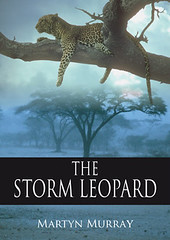I came across some customary laws of the indigenous Wapichan* of southern Guyana which I guess are not atypical of native American forest peoples. Calvin Martin describes similar kinds of beliefs amongst the Northeastern Algonquian Tribe (eastern Canada) in his marvelous book Keepers of the Game (University of California Press, 1978). So these are some of the Wapichan customs relating to their use of the environment:
- We will maintain the abundance of game animals by: respecting doronainao mashapkiizi (homes of the grandfather spirits);
- Grandfather spirit masters of the game animals must be respected and decorative animals such as the giant anteater must not be killed;
- Announce your presence to the mountain spirits and do not disturb sensitive sites;
-
- Do not cut trees with spirit masters and do not set fires nor make camps at sensitive sites in the forest;
- Do not trouble sensitive pools with kadorara (water spirits);
- Never carry away the belongings of the tapikinao watching over caves and burial grounds.
Some might consider these kinds of belief to be based on superstition with little relevance to the way we manage our environment in the modern age. But suppose we think about this from a more pragmatic starting point. What might the Wapichan’s belief sytem achieve in practice? It would presumably have avoided overhunting and overharvesting. It would have prevented excessive loss of forests. It would have prohibited pollution and sedimentation of lakes and rivers. It would have acted against the accumulation of rubbish in the vicinity of beautiful spots like waterfalls, viewpoints and majestic trees. It similarly would have stopped desecration of caves and burial grounds.
Suppose our modern culture could achieve just one of these things. I don’t just mean in a few protected areas or privileged zones but all across our living landscapes. Would we not celebrate and consider it a great achievement? What comes across to me is that these customary laws have arisen in a culture that has learnt the necessity of caring for its natural environment. I don’t think we can truly look after ours, unless we learn our own similar way of caring. That of course will mean a culture that also cares for its own people.
* Further information on the Wapichan at: <www.forestpeoples.org/publications/results/Wa Wiizi Wa Kaduzu>





